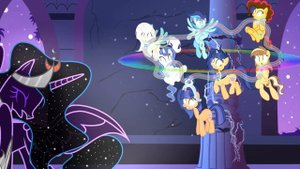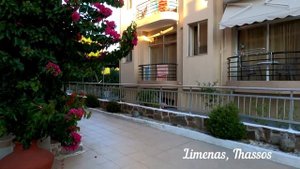
 1:09
1:09
2023-12-20 07:44

 3:57
3:57

 3:57
3:57
2023-12-07 05:56

 1:22
1:22

 1:22
1:22
2023-11-01 12:33
![MLP [Next Gen] Velvet Sentry's stories (Tribute)](https://pic.rutubelist.ru/video/51/18/5118935d31aba1c2027478712907e895.jpg?width=300)
 1:48
1:48
![MLP [Next Gen] Velvet Sentry's stories (Tribute)](https://pic.rutubelist.ru/video/51/18/5118935d31aba1c2027478712907e895.jpg?width=300)
 1:48
1:48
2023-11-28 06:57

 1:33
1:33

 1:33
1:33
2024-12-03 14:04

 18:32
18:32

 18:32
18:32
2025-05-28 14:21

 3:25
3:25

 3:25
3:25
2023-12-19 14:35

 4:14
4:14

 4:14
4:14
2023-11-20 18:04

 37:14
37:14

 37:14
37:14
2023-11-25 03:32

 35:53
35:53

 35:53
35:53
2023-11-14 18:01

 1:00:39
1:00:39

 1:00:39
1:00:39
2024-06-03 12:04

 1:59
1:59

 1:59
1:59
2023-07-04 19:29

 1:11:12
1:11:12

 1:11:12
1:11:12
2022-04-14 20:37

 3:49
3:49

 3:49
3:49
2022-06-18 06:32

 3:32
3:32

 3:32
3:32
2023-09-01 10:16

 30:02
30:02

 30:02
30:02
2023-08-31 13:36

 7:53
7:53

 7:53
7:53
2023-09-03 02:17

 1:21:33
1:21:33
![Алмас Багратиони - Сила веры (Премьера клипа 2025)]() 3:18
3:18
![Виктория Качур - Одного тебя люблю (Премьера клипа 2025)]() 3:59
3:59
![Magas - Без тебя (Премьера клипа 2025)]() 2:28
2:28
![Ольга Бузова - Не надо (Премьера клипа 2025)]() 3:15
3:15
![Taylor Swift - The Fate of Ophelia (Official Video 2025)]() 3:58
3:58
![Анна Бершадская - Новая я (Премьера клипа 2025)]() 2:41
2:41
![Зафар Эргашов - Мусофирда каридим (Премьера клипа 2025)]() 4:58
4:58
![Азиз Абдуллох - Аллохнинг айтгани булади (Премьера клипа 2025)]() 3:40
3:40
![Мария Зайцева - Жаль моя (Премьера клипа 2025)]() 4:25
4:25
![Азимжон Сайфуллаев - Тупрок буламиз (Премьера клипа 2025)]() 4:38
4:38
![Зара - Я несла свою беду (Премьера клипа 2025)]() 3:36
3:36
![Руслан Гасанов, Роман Ткаченко - Друзьям (Премьера клипа 2025)]() 3:20
3:20
![Жалолиддин Ахмадалиев - Тонг отгунча (Премьера клипа 2025)]() 4:44
4:44
![Бьянка - Бренд (Премьера клипа 2025)]() 2:29
2:29
![Динара Швец - Новая история (Премьера клипа 2025)]() 3:45
3:45
![Anette - Erjanik em (Official Video 2025)]() 3:36
3:36
![INSTASAMKA - AGENT GIRL (Премьера клипа 2025)]() 3:24
3:24
![Рустам Батербиев - Пора расстаться (Премьера клипа 2025)]() 2:38
2:38
![Любовь Попова - Прощай (Премьера клипа 2025)]() 3:44
3:44
![Светлана Ларионова - Осень отстой (Премьера клипа 2025)]() 3:30
3:30
![Только ты | All of You (2025)]() 1:38:22
1:38:22
![Пойман с поличным | Caught Stealing (2025)]() 1:46:45
1:46:45
![Стив | Steve (2025)]() 1:33:34
1:33:34
![Сумерки | Twilight (2008)]() 2:01:55
2:01:55
![Эффект бабочки | The Butterfly Effect (2003)]() 1:53:35
1:53:35
![Псы войны | Hounds of War (2024)]() 1:34:38
1:34:38
![Лос-Анджелес в огне | Kings (2017)]() 1:29:27
1:29:27
![Школьный автобус | The Lost Bus (2025)]() 2:09:55
2:09:55
![Мальчишник в Таиланде | Changeland (2019)]() 1:25:47
1:25:47
![Непрощённая | The Unforgivable (2021)]() 1:54:10
1:54:10
![Свинтусы | The Twits (2025)]() 1:42:50
1:42:50
![Свинья | Pig (2021)]() 1:31:23
1:31:23
![Тот самый | Him (2025)]() 1:36:20
1:36:20
![Хищник | Predator (1987) (Гоблин)]() 1:46:40
1:46:40
![Обитель | The Home (2025)]() 1:34:43
1:34:43
![Дикари | The Savages (2007)]() 1:54:19
1:54:19
![Французский любовник | French Lover (2025)]() 2:02:20
2:02:20
![Долгая прогулка | The Long Walk (2025)]() 1:48:08
1:48:08
![Вечеринка только начинается | The Party's Just Beginning (2018)]() 1:31:20
1:31:20
![Сверху вниз | Highest 2 Lowest (2025)]() 2:13:21
2:13:21
![Поймай Тинипин! Королевство эмоций]() 12:24
12:24
![Школьный автобус Гордон]() 12:34
12:34
![Пингвиненок Пороро]() 7:42
7:42
![Люк - путешественник во времени]() 1:19:50
1:19:50
![Забавные медвежата]() 13:00
13:00
![Умка]() 7:11
7:11
![Мартышкины]() 7:09
7:09
![Тёплая анимация | Новая авторская анимация Союзмультфильма]() 10:21
10:21
![Полли Покет Сезон 1]() 21:30
21:30
![Монсики]() 6:30
6:30
![Последний книжный магазин]() 11:20
11:20
![Тодли Великолепный!]() 3:15
3:15
![Сборники «Оранжевая корова»]() 1:05:15
1:05:15
![Сборники «Умка»]() 1:20:52
1:20:52
![Тайны Медовой долины]() 7:01
7:01
![Сандра - сказочный детектив Сезон 1]() 13:52
13:52
![Супер Дино]() 12:41
12:41
![Минифорс. Сила динозавров]() 12:51
12:51
![Ну, погоди! Каникулы]() 7:09
7:09
![Енотки]() 7:04
7:04

 1:21:33
1:21:33Скачать видео
| 256x144 | ||
| 640x360 |
 3:18
3:18
2025-10-24 12:09
 3:59
3:59
2025-10-24 12:00
 2:28
2:28
2025-10-17 12:00
 3:15
3:15
2025-10-18 10:02
 3:58
3:58
2025-10-17 11:48
 2:41
2:41
2025-10-22 14:02
 4:58
4:58
2025-10-18 10:31
 3:40
3:40
2025-10-18 10:34
 4:25
4:25
2025-10-17 11:28
 4:38
4:38
2025-10-23 11:27
 3:36
3:36
2025-10-18 10:07
 3:20
3:20
2025-10-25 12:59
 4:44
4:44
2025-10-19 10:46
 2:29
2:29
2025-10-25 12:48
 3:45
3:45
2025-10-15 10:45
 3:36
3:36
2025-10-18 10:11
 3:24
3:24
2025-10-17 11:33
 2:38
2:38
2025-10-16 11:06
 3:44
3:44
2025-10-21 09:25
 3:30
3:30
2025-10-24 11:42
0/0
 1:38:22
1:38:22
2025-10-01 12:16
 1:46:45
1:46:45
2025-10-02 20:45
 1:33:34
1:33:34
2025-10-08 12:27
 2:01:55
2:01:55
2025-08-28 15:32
 1:53:35
1:53:35
2025-09-11 08:20
 1:34:38
1:34:38
2025-08-28 15:32
 1:29:27
1:29:27
2025-08-28 15:32
 2:09:55
2:09:55
2025-10-05 00:32
 1:25:47
1:25:47
2025-08-27 17:17
 1:54:10
1:54:10
2025-08-27 17:17
 1:42:50
1:42:50
2025-10-21 16:19
 1:31:23
1:31:23
2025-08-27 18:01
 1:36:20
1:36:20
2025-10-09 20:02
 1:46:40
1:46:40
2025-10-07 09:27
 1:34:43
1:34:43
2025-09-09 12:49
 1:54:19
1:54:19
2025-08-27 18:01
 2:02:20
2:02:20
2025-10-01 12:06
 1:48:08
1:48:08
2025-10-24 17:32
 1:31:20
1:31:20
2025-08-27 17:17
 2:13:21
2:13:21
2025-09-09 12:49
0/0
 12:24
12:24
2024-11-27 13:24
 12:34
12:34
2024-12-02 14:42
 7:42
7:42
2024-12-17 12:21
 1:19:50
1:19:50
2024-12-17 16:00
 13:00
13:00
2024-12-02 13:15
 7:11
7:11
2025-01-13 11:05
 7:09
7:09
2025-04-01 16:06
 10:21
10:21
2025-09-11 10:05
2021-09-22 23:09
 6:30
6:30
2022-03-29 19:16
 11:20
11:20
2025-09-12 10:05
 3:15
3:15
2025-06-10 13:56
 1:05:15
1:05:15
2025-09-30 13:45
 1:20:52
1:20:52
2025-09-19 17:54
 7:01
7:01
2022-03-30 17:25
2021-09-22 20:39
 12:41
12:41
2024-11-28 12:54
 12:51
12:51
2024-11-27 16:39
 7:09
7:09
2025-08-19 17:20
 7:04
7:04
2022-03-29 18:22
0/0

